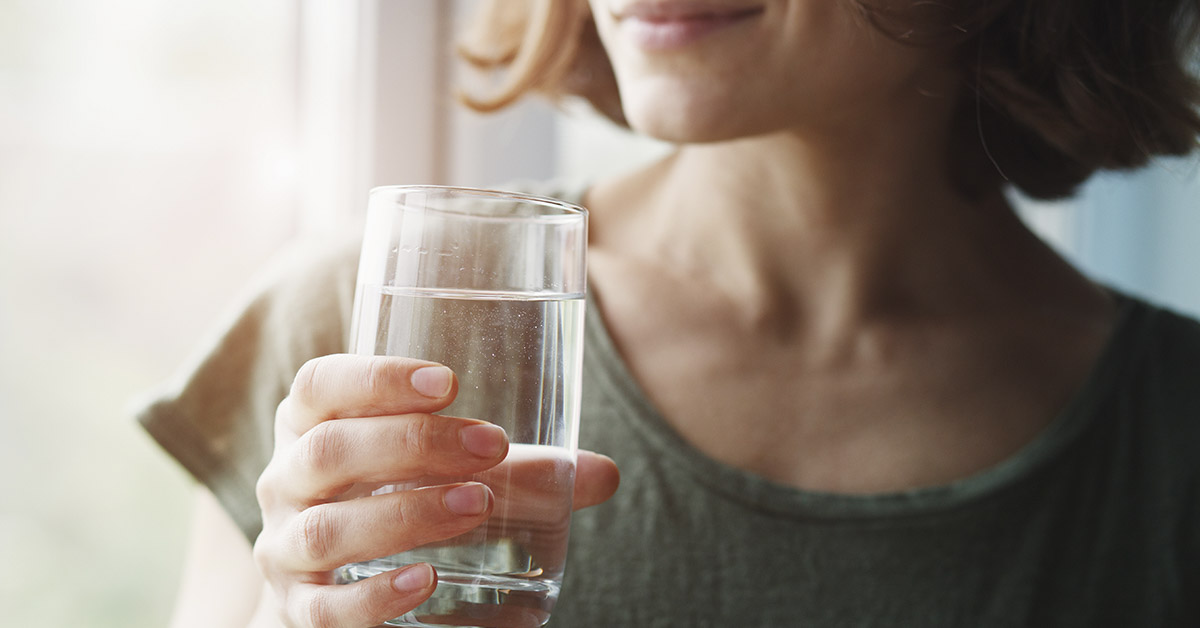We’ve all heard claims about “drinking water first thing in the morning” or “drinking it on an empty stomach,” but is there any truth to the claims surrounding these? While we could go on and on about the benefits of hydration—and we will—we want to focus on one particular claim: that drinking water on an empty stomach in the morning is somehow uniquely beneficial. Is there any truth to this?
Does Drinking Water On An Empty Stomach In The Morning Have Any Extra Benefits?
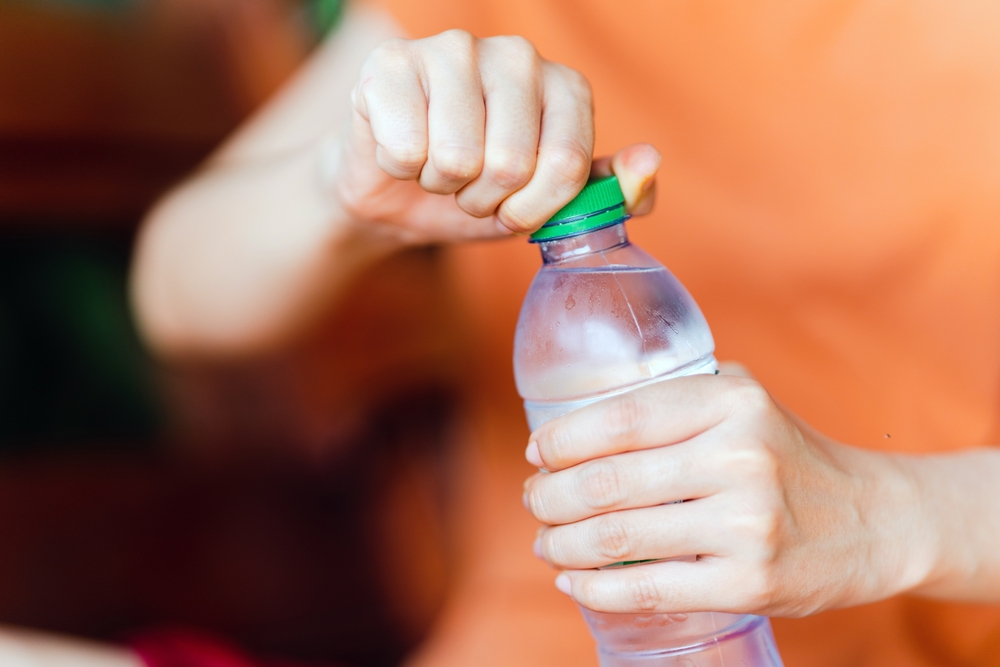
The short answer is no. While it may be true that drinking a glass of water on an empty stomach may help you feel more awake or refreshed first thing, it’s not doing anything additional because it’s on an empty stomach. Truthfully, there is no evidence that drinking water first thing in the morning makes any notable difference in any health marker. The most important thing is simply that you are properly hydrated throughout the day. When you get the water is probably more of an individual preference.
Read More: 5 Reasons to Eat Watermelon Often
Water is essential
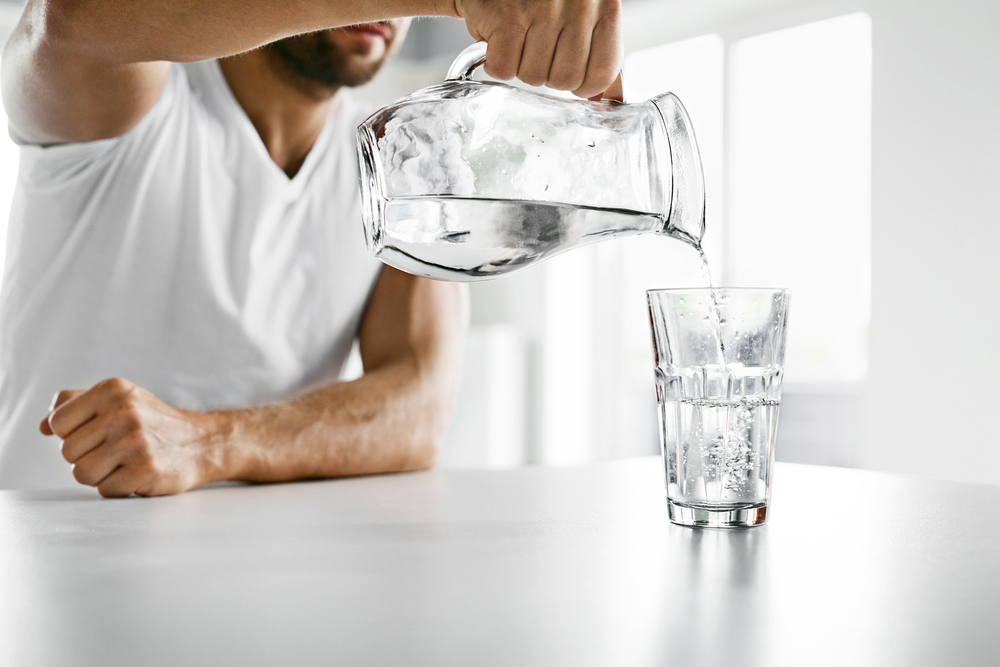
Your body can’t produce enough water through metabolism to meet your daily needs. This means you need to consume water via your diet – including food and, naturally, drinks. Every tissue and organ in your body requires water. This includes (1):
- nutrient transportation
- thermoregulation (regulating your body temperature)
- lubrication of your joints and lubrication fluids in your body (saliva and mucous)
- Shock absorbance
Dehydration is very dangerous. At a minor level, it will leave you feeling lethargic, incapable of concentration, and decrease athletic performance, not to mention the effects it has on your hair and skin. At an extreme level, it causes organ failure and death.
Still, there is much misinformation about water: How much you should drink per day, the temperature of the water, and whether or not drinking water on an empty stomach has specific benefits. Let’s clarify some of these myths and misconceptions so that you can focus on hydrating properly.
Myth 1: Drinking water on an empty stomach first thing in the morning removes toxins from your body
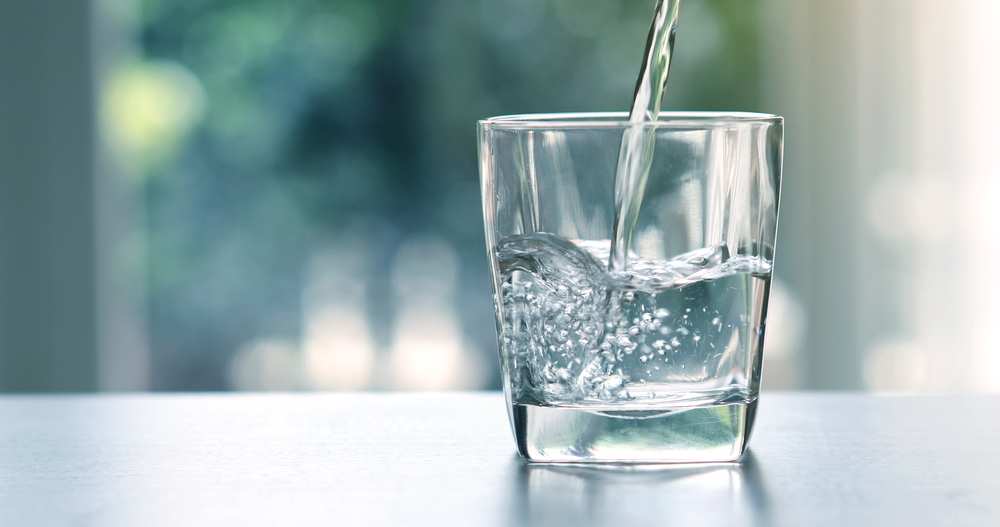
This is a common myth that many people believe, but there’s no evidence to back it up. Drinking water first thing in the morning has no special benefits for your body or its ability to remove toxins from your system; it’s simply part of a healthy hydration routine. Your kidneys are responsible for removing waste and toxins from your body. Do they require water to function? Of course. Does your water drinking schedule have any impact on this? No. (2)
There is also a common misconception that because your urine is darker in color in the morning, this means that you are dehydrated from not having drunk all night. This is not entirely true. Researchers studied urine samples of adults after a night’s sleep without water intake and found that urine color in the morning didn’t actually correlate with dehydration levels. It is simply darker because it is more concentrated because you also didn’t urinate during that time. (3)
Myth 2: Drinking water before breakfast decreases your calorie intake throughout the day and helps you lose weight.
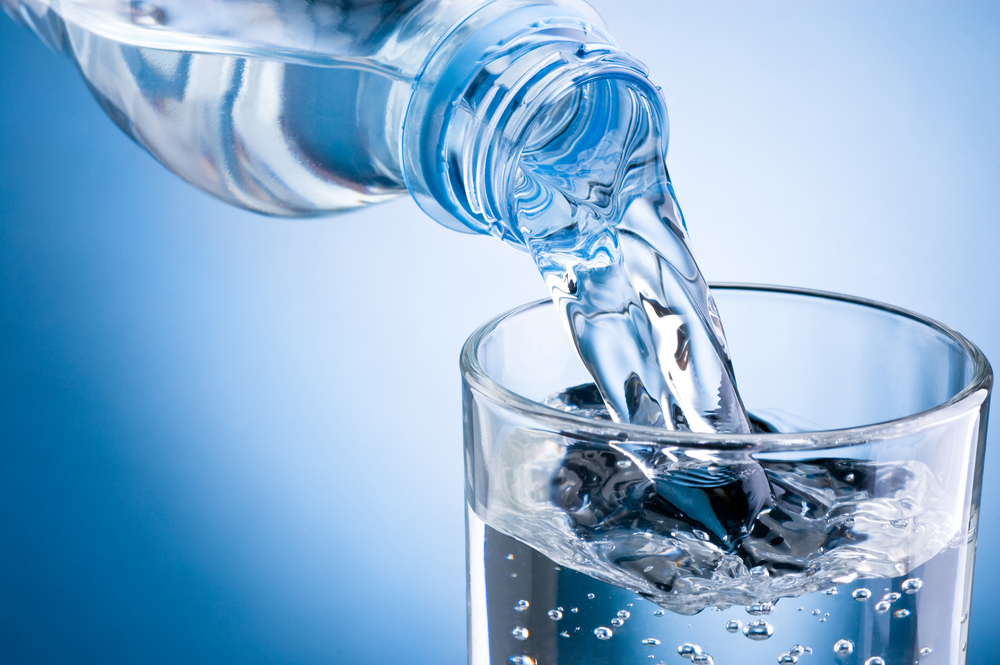
While water can make you feel fuller, this effect does not exclusively apply to drinking water before breakfast — nor the general population. While there are some studies that suggest that drinking water prior to a meal (breakfast, lunch, etc.) can help to reduce calorie intake in said meal, these results only held true for older adults. That is to say that drinking water before meals had no effect on younger adults. None of the studies found specifically that drinking water before breakfast would change appetite levels for the whole day, either. (4, 5)
Furthermore, many so-called ‘health experts‘ claim that a glass of water first thing in the morning promotes weight loss. There is some truth to this, as water does have a thermogenic effect. This means that your body has to work, aka burn calories, to warm up the water when you drink it. Studies show that this thermogenesis has the capacity to increase your metabolic rate by 24-30% in the first 60 minutes after drinking a glass of water. However, there is no evidence to suggest that drinking a glass first thing in the morning has any special effect over any other time of day. (6)
Read More: How To Make Relaxing Magnesium Water
Myth #3: Drinking water first thing improves mental performance and concentration.
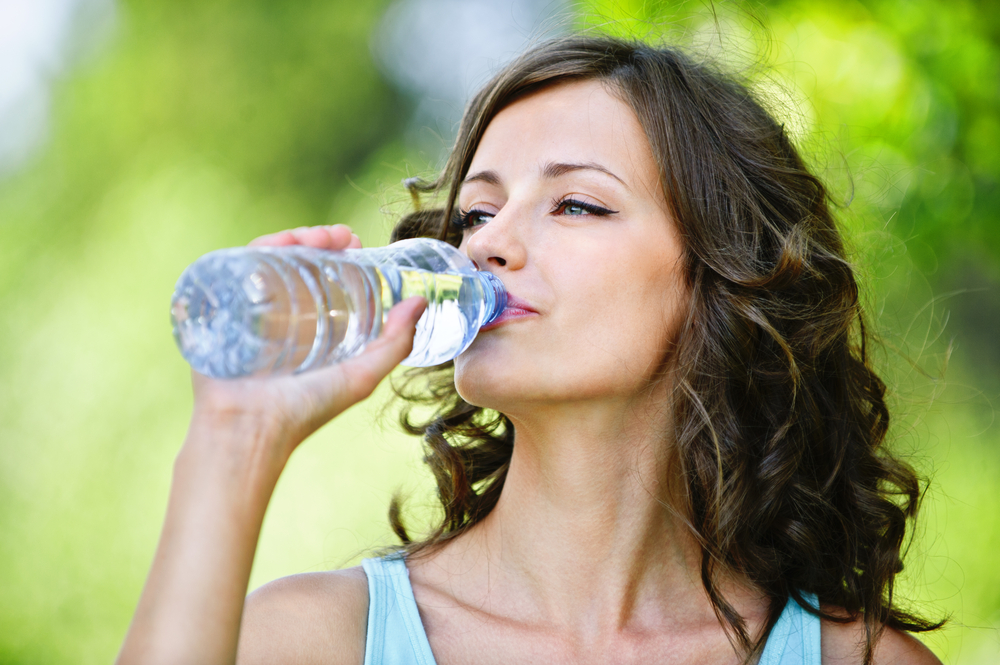
It is true that if you are dehydrated, you will struggle to focus. It makes completing mental tasks, such as memorization, more difficult. The research also shows that consuming fluids to rehydrate will reverse these symptoms and solve these concentration problems. That being said, there is no evidence to suggest that drinking water first thing in the morning boosts mental clarity. As long as you are constantly well-hydrated, you should not have any problems. (7, 8)
The Truth About Hydration
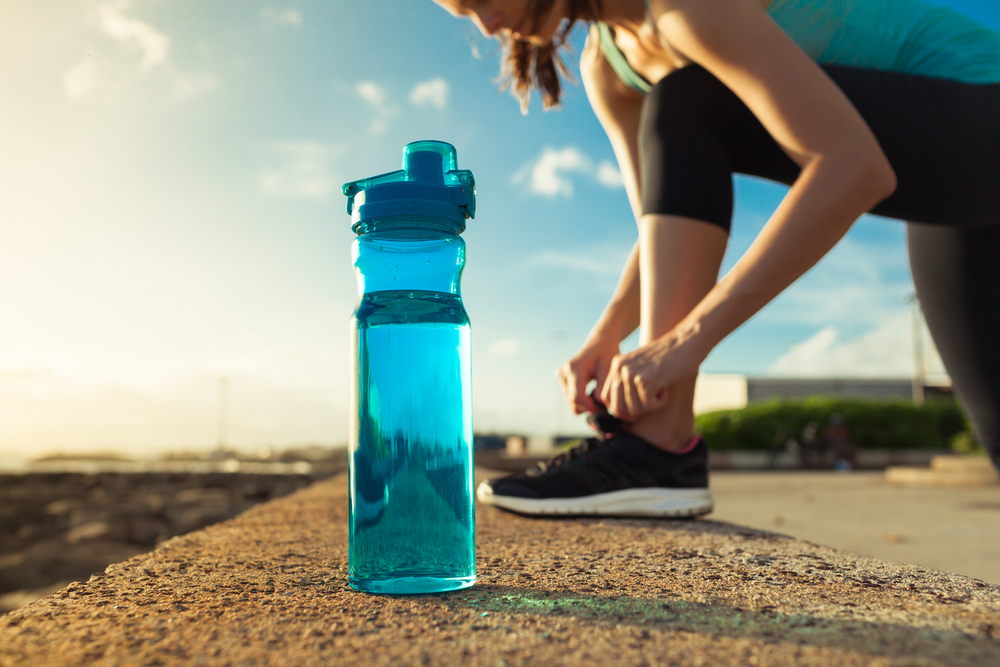
As already established, your body needs water to function – its essential. The amount of water you must consume daily depends on many variables. These include:
- Age
- Biological sex
- Activity level
- The climate you live in
- How active you are
- Your diet
For example, if you do a lot of outdoor physical activity and you live in a hot climate, your water needs will increase. You may also notice you feel more thirsty after a particularly tough weights session at the gym. This is because your body needs lots of water in order to repair your muscles. Diet plays a part as well. People whose diet is based on vegetables, fruits, and unprocessed foods will naturally contain more water than those who eat mostly prepacked, processed foods. Age, body size, and biological sex also have an impact on how much water your body needs to function.
Stay Hydrated, Friends
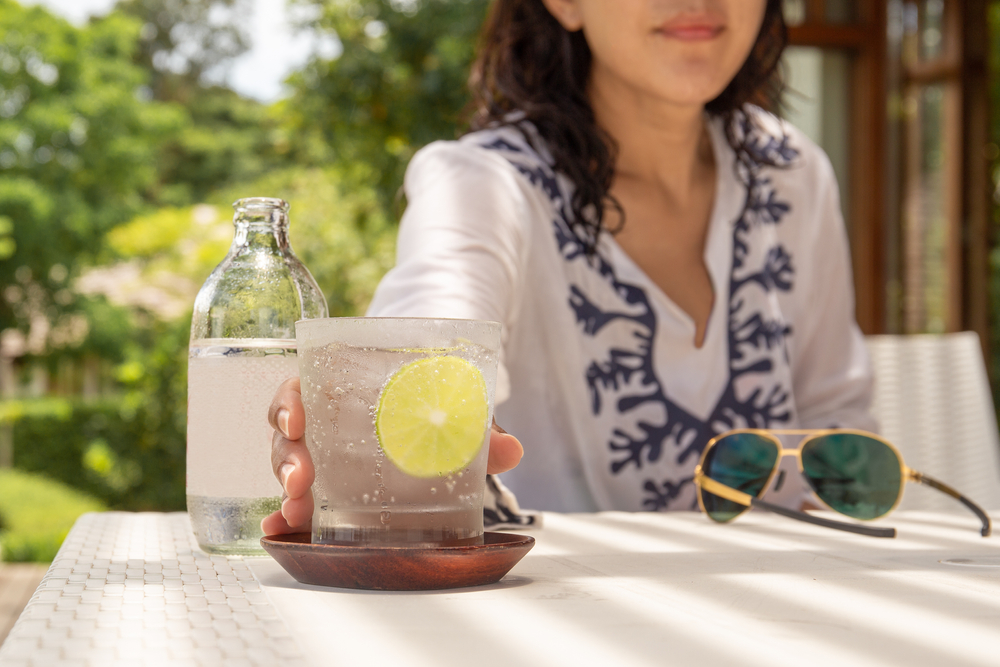
The most important thing to focus on when it comes to hydration is simply that you are staying hydrated. No evidence suggests drinking water in the morning will impact your health more than drinking after breakfast or any other time. If you personally find that starting your day with a glass of water sets your hydration routine on track for the rest of the day, then go for it! The truth is, however, that timing is not as important as constant hydration throughout the day is. (9)
On top of that, it is important to not overdo it and overhydrate, as this is also dangerous. If you are a highly active person or work outdoors, especially in the hotter months, you will likely need to support your hydration with electrolyte-containing beverages, not just water. This is because when we sweat, we don’t just sweat water, but also important electrolytes such as sodium and potassium. So the final message here is simply this: Find a hydration routine that works for you and stick to it. Your body will thank you for it.
Read More: Here’s How Much Water Your Body Needs to Lose Weight
Sources
- “Water as an essential nutrient: the physiological basis of hydration.” NCBI. E Jéquier and F Constant. February 2010.
- “Water, Hydration and Health.” NCBI August 2011.
- “Human hydration indices: acute and longitudinal reference values.” NCBI. Lawrence E Armstrong, et al. April 2010.
- “The impact of water intake on energy intake and weight status: a systematic review.” NCBI. Melissa C. Daniels and Barry M. Popkin. September 2011.
- “Water consumption reduces energy intake at a breakfast meal in obese older adults.” NCBI. Brenda M Davy, et al. July 2008.
- “Water drinking induces thermogenesis through osmosensitive mechanisms.” NCBI. Michael Boschmann, et al. May 2007.
- “Hydration and cognitive performance.” NCBI. M Sécher and P Ritz. April 2012.
- “Water, Hydration and Health.” NCBI. Barry M. Popkin, Kristen E. D’Anci, and Irwin H. Rosenberg. August 2010.
- “The Water Myth.” McGill. Christopher Labos MD, MSc. May 31, 2018.
